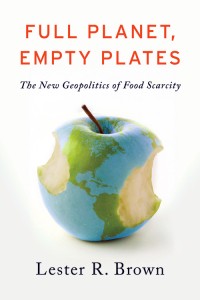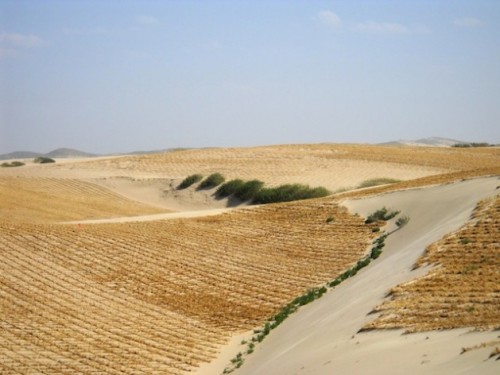
In his 2012 book Full Planet, Empty Plates, Lester Brown asserts that our world has reached a tipping point. Already crowded regions such as Sub-Saharan Africa, India, and China face projected population booms, edible crops are being wasted on a dubious biofuel industry, and global warming is taking its toll on crop yields. All this, according to Brown, has created the perfect storm: with growing population pressures and ever-diminishing resources, humanity is now in the midst of a geopolitical crisis.

One of Brown’s central arguments is that our global resources are intertwined — most prominently, food, fuel, and water. When 70 percent of our water is reserved for irrigation and 32 percent of crops are used for fuel, a shortage of any major resource lowers the availability and affordability of all goods in the global market. Furthermore, every one degree Celsius increase in global temperature causes a corresponding 10 percent decrease in crop yields. Since our resources are so closely linked, we are even more vulnerable to environmental damage: we have put all of our eggs in one basket, and that basket is in a precarious position.

As he cites dire statistics to develop his argument, Brown’s heavy reliance on numerical elements in prose format can often distract from the book’s key takeaway. But even in the absence of charts and graphs, these statistics still have an impact on the invested reader. Depicting a threat of global proportions, Lester’s message ultimately prevails because it appeals to the most primitive of instincts: survival.
